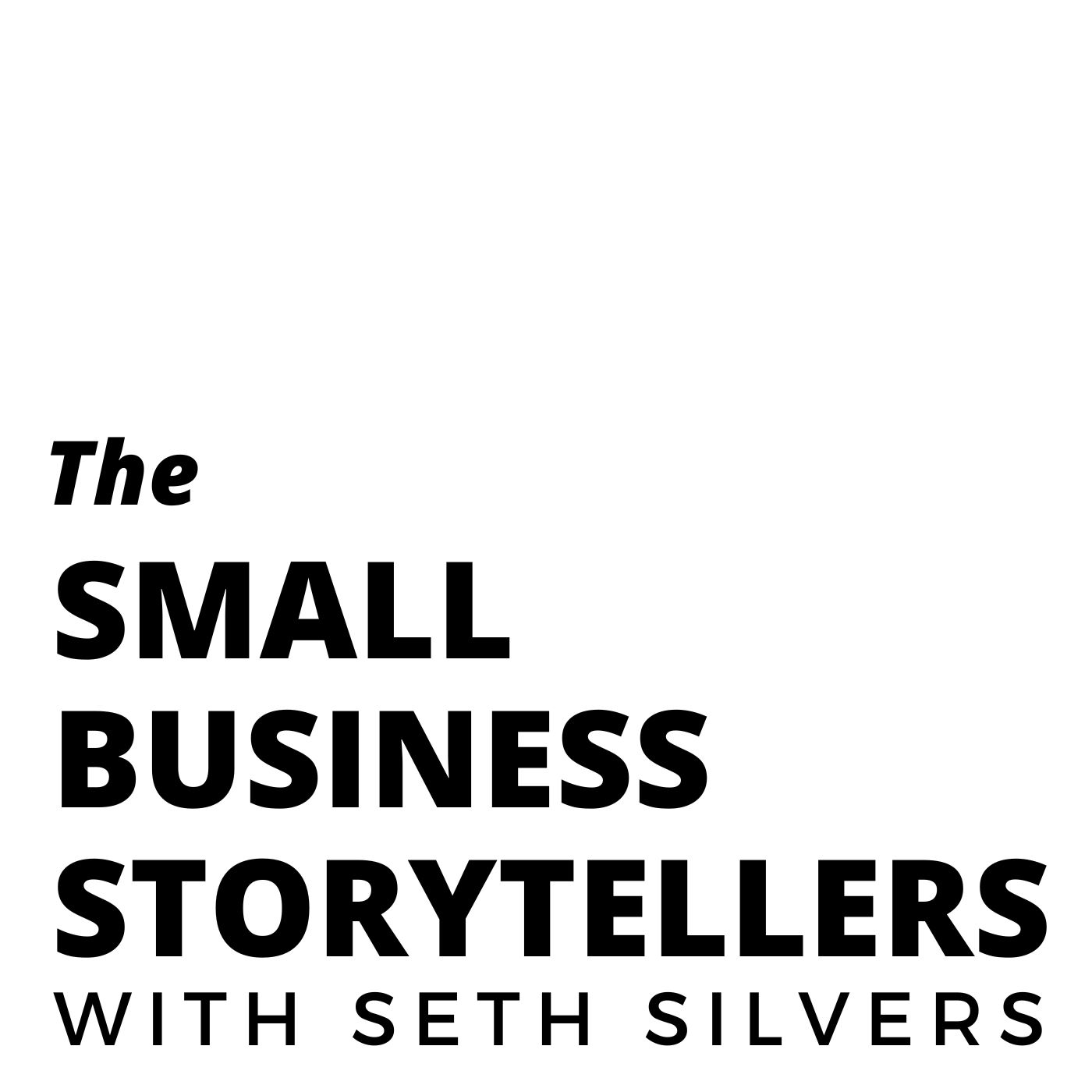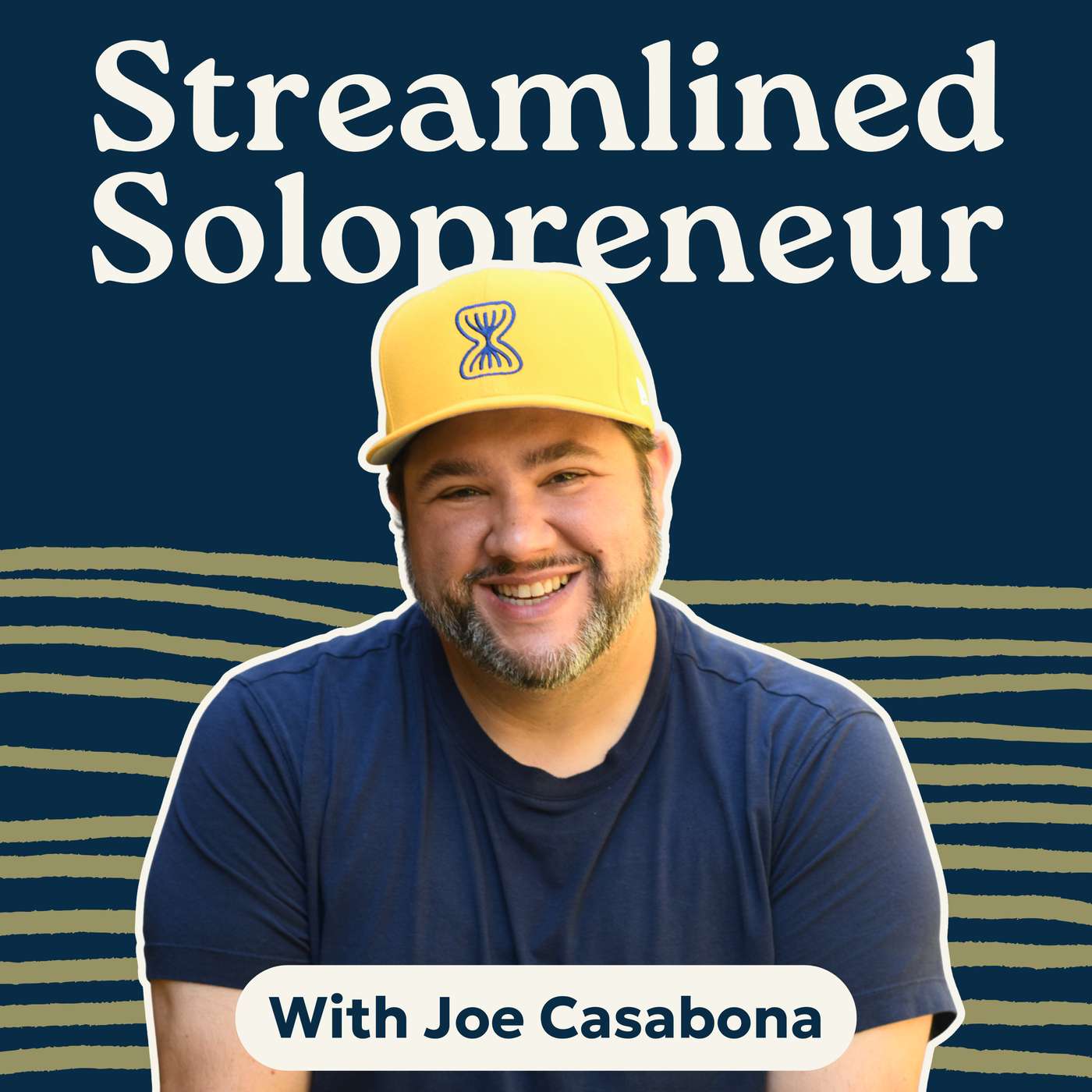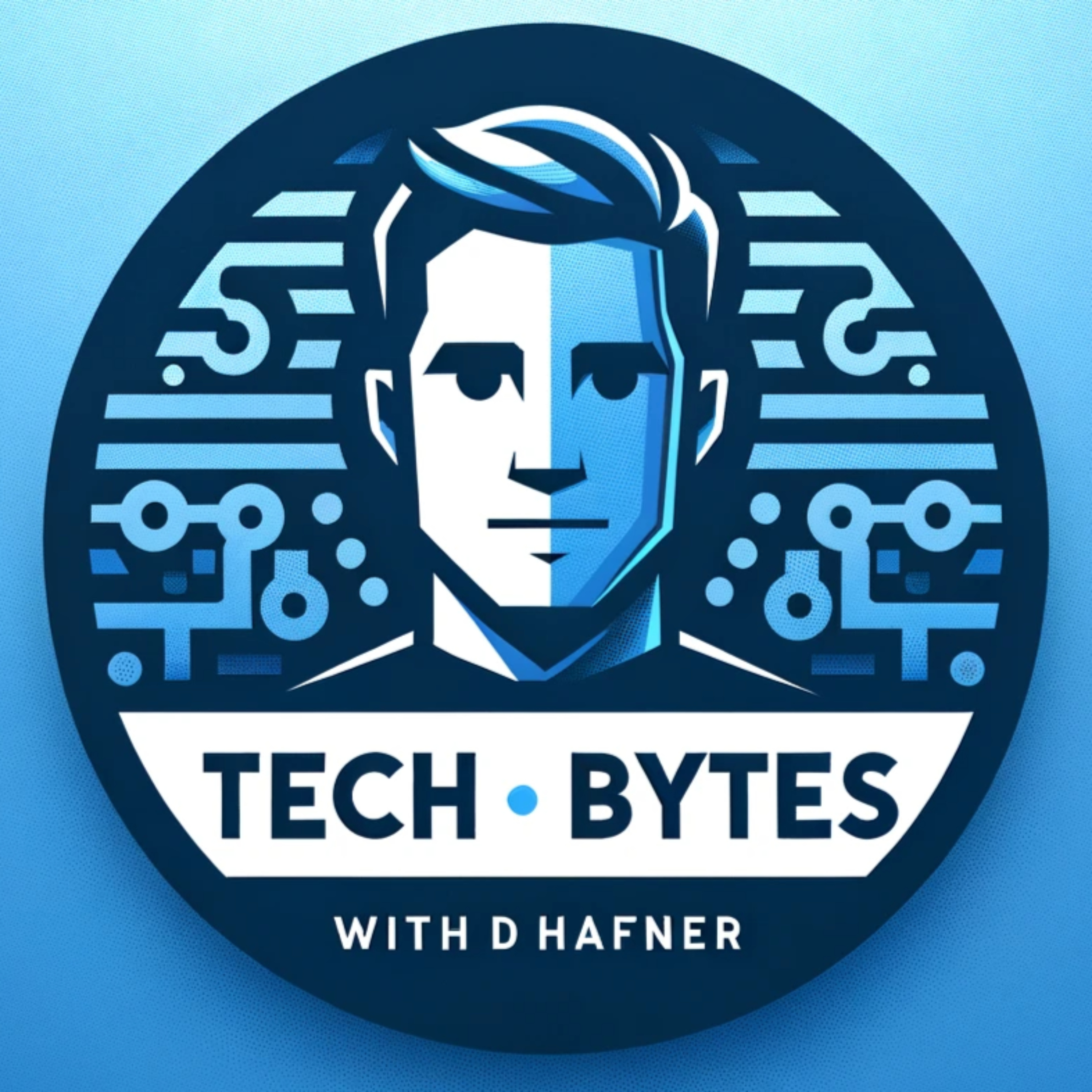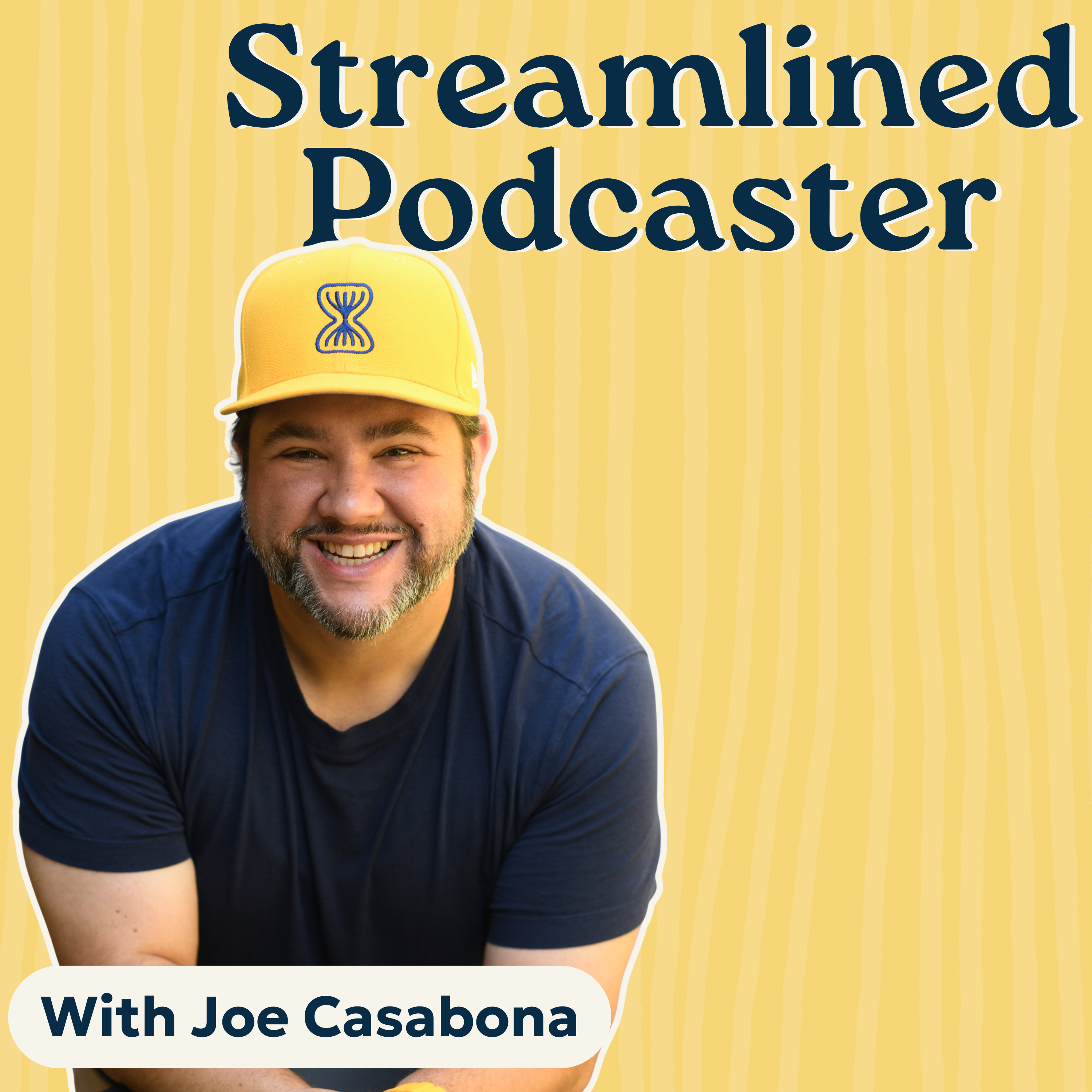
Podcasting Made Simple
Podcasting Made Simple is the premier podcast about podcasting! We’re here to help podcast guests and podcast hosts reach more listeners and grow their income so they can change more lives! Join Alex Sanfilippo and other podcasting industry experts as they share how you can level up on either side of the mic! (Show notes and resources: https://PodMatch.com/episodes)
Podcasting Made Simple
Recording Better Interviews That Listeners Love | Bob Wheeler
Hosting an interview-format podcast can be challenging because of all the unknowns from the guest seat. You're never entirely sure who you'll get! Thankfully, there is a framework that ensures your conversations with guests flow in a direction that serves listeners no matter what. In this episode, Bob Wheeler explains some techniques you can implement to make you stand out as a great interviewer. Get ready to have more powerful conversations with your guests that listeners will love!
MORE ON THIS EPISODE: HTTPS://PODMATCH.COM/EP/306
Chapters
00:00 The Art of Hosting and Active Listening
02:51 Preparing for Engaging Conversations
06:14 Creating a Safe Space for Guests
09:08 Techniques for Active Listening
12:01 Enhancing Podcast Conversations
14:00 Continuous Improvement as a Host
Takeaways
Active listening is crucial for effective podcasting.
True connection comes from being fully present with guests.
Researching guests enhances the quality of conversations.
Setting clear intentions helps guide the podcast flow.
Open-ended questions invite deeper responses from guests.
Creating a safe space encourages guests to share openly.
Empathy and curiosity foster meaningful connections.
Taking notes keeps hosts engaged and informed.
Practicing mindfulness improves focus during conversations.
Continuous improvement is key to becoming a better host.
MORE ON THIS EPISODE: HTTPS://PODMATCH.COM/EP/306
PodMatch has officially launched a podcast network for independent interview-based podcasts! To apply to be part of the network, please visit https://PodMatch.com/network and press the "Join Network" button in the top center of the screen. While you're there, be sure to check out some of the incredible shows in the network!
You're listening to Podcasting Made Simple. Hello, my fellow humans. I mean, I'm going to assume that you're all humans and not bots in light of all this current AI talk. I'm Bob Wheeler, and I'm excited to talk to you today about the art of hosting, specifically to talk about active listening and unrehearsed responses. My goal is to help you transform your hosting skills and ultimately your podcast. So hold on tight to your headphones for an ear-tingling adventure that'll have you saying, wait, Did he seriously just teach me something amazing? And hopefully I will. Let's be honest. It's no secret that the podcast world is becoming increasingly popular. And guess what? Everyone thinks they can host a podcast and they can. But being a great host is no walk in the park. It takes more than a decent microphone and a flashy website. One of the biggest mistakes podcasters make is not actively listening and using rehearsed responses. So you spent 10 years in prison. That sounds amazing. How did you find the time to write that book? Prison's probably not that amazing, and that's probably where they found the time to write the book. Don't just respond to avoid silence. One thing is for sure, as podcast hosts, we love to talk. We love to share our thoughts, ideas, and opinions on a variety of topics. However, as much as we all like to talk, we need to take twice as much time to listen. Active listening, also known as mindful listening, It's a vital skill that can not only improve the quality of your podcast, but also build a stronger connection with your guests and audience. It requires more than just hearing words, but creating a safe and trusting space to share ideas and authentically communicate. This is listening on purpose. Listening to understand rather than listening to respond. Have you ever had a truly engaging conversation? And I don't mean in a podcast episode, but okay. real in-person, back and forth, that sparked excitement, energy and connection? Think back to the topic, the location, the people or person you were with. What made it so special? Nine out of 10 times, it was the connection you had with the person or people, and feeling being heard and being part of something that mattered. Now imagine creating that same kind of captivating conversation on a podcast or in an interview. And on top of that, you're inviting in an audience to be part of the experience. Set the tone for an awesome conversation by making your guests feel all warm and fuzzy. Not only will they love it, but your audience will love it too. Win-win. So today, I'm going to share some tips and tools that I use to be fully engaged with my guests and how I use active listening to drive the conversation. My ultimate goal is to help you prepare for and create riveting conversations that will leave your audience Why more? For a moment, forget the idea of selling yourself or trying to impress. True connection comes from being fully present and attentive to what they are saying in that very moment. And when you respond or move to the next question, speak from where they left off, not from your notes or your unflexible list of questions. Lose those canned responses and use your pre-planned questions as a guideline, not an absolute. Okay. So before I hit the record button with my guests, I like to do a few things to get myself ready and set up the space for a great conversation. I like to dig up some juicy research on my guests before they hop on to record. It's like building your own secret stash of insider info. You may stumble upon some awesome tidbits that could elevate the conversation. And ultimately by doing so, your guests will be more invested in you and the conversation. I surprised one of my guests by mentioning a student film he had done years before. I found it buried deep within page 10 of a Google search. He was pretty impressed that I found it. Learn as much as you can about them. Write down their spouse's name or know that they are single, how many kids they have, or that they have five chickens. Yes, I have guests with chickens. Are they afraid of sharks? I like to find something I can relate to, a fun fact about them. Let them know you did your homework and that it's personal. One time I was scheduled to be a guest and the focus was on being an entrepreneur. About 20 minutes before the show, they sent me an email saying they needed to cancel the episode because they had decided to shift the podcast focus from entrepreneurs to business strategies, accounting and taxes. I responded back, hey, that's totally fine. But had you read my bio, you would know that I'm a CPA with a tax practice that focuses on small businesses and tax strategies. They didn't seem to know anything about me right up into the moment of the podcast. A flurry of apologies followed, but the impression was already made. Now, if you're anything like me, there's nothing more nerve wracking than trying to pronounce someone's name and feeling like you're about to trip over your own tongue. Trust me, I've been there multiple times. Historically, I am bad with names. So, scour the depths of the internet to find interviews, social media profiles, or personal websites where your guest might have dropped some pronunciation hints. Become a linguistics detective on a mission. Or when in doubt, ask your guests prior to recording. They'll appreciate your dedication and might even share a funny story about how everyone mispronounces their names. Cue the bonding moment. Personally, I like to write their name down out phonetically just to be safe. So go forth and conquer those name pronunciations like the podcasting superstar you are. or just interview everyone named Bob. Set clear intentions before each podcast episode. Remind yourself of the key topics or questions you want to cover. This mental roadmap will help you stay on track and bring your attention back whenever it starts to stray. I like to ask open-ended questions by crafting questions that invite detailed responses. You'll keep your conversation engaging and allow your guests to share their stories fully. Instead of asking yes or no questions, tap into the depths of curiosity and ask questions that ignite passion and provoke thoughtful responses. For instance, instead of asking, do you like to travel? Consider asking, what's your most memorable travel experience and how did it shape your perspective? See how the latter question sparks a more interesting and engaging discussion. And finally, still before we record, I like to reassure the guests by saying, look, I'm going to ask some questions that may be uncomfortable. But I want you to know that there's no intention to make you look bad, catch you off guard, or trip you up. I want this to show you in a positive light and be a positive experience. So if I ask you anything that feels offensive or off, please let me know and we'll just move on because that's not my intention. I also like to inform them that if they spill the beans or overshare on something they didn't mean to, no problem. We'll gladly edit it out for them. I remind them that if they can, try to keep things succinct and on point. They don't need to give answers that could be published as a novel. And I asked them to try and answer without memorized responses. Many of us have had a few of those canned answers. And I let them know that we will probably experience laughter, tears, anger, and lots of emotions in between. It's all welcome. You want your guests to feel taken care of. So now that you've created a safe and comfortable space for your guests, how do we take our podcast hosting to the next level? If only we had superhuman powers of listening. But since there aren't any X-Men who stream podcasts, the rest of us are going to have to work a little bit harder. Becoming a better listener requires nothing more than intentionality and focus. Active listening goes beyond simply hearing the words of your guests. It involves creating a safe space to share, being fully present, actively engaging with their ideas, and responding thoughtfully. When you actively listen, you create a connection that transcends mere dialogue. You create a sense of belonging and mutual understanding between you and your guests. Here are some easy tips that you can incorporate into your podcast hosting and active listening journey. Be fully present. It all starts with giving them your undivided attention. Set aside distractions, lock in eye contact, and let them know you're 100 % invested in listening to what they have to say. Turn their dial right up on your focus. really listen to the words they are saying. I was talking to a guest about a social construct called Game B. I inadvertently called it Plan B during the conversation. The guest was so annoyed that I didn't get it right. The energy of the conversation shifted from that moment on, and so did my confidence. Thankfully, it was at the end of the episode, but man, did he correct me with a death stare. But you won't hear or see that in the episode because we have technology. My point is, Listen, avoid interrupting. Resist the urge to interrupt. Instead, give them the space to share their thoughts. By doing so, you'll create a harmonious conversation and your guests will feel heard and respected rather than frustrated and annoyed. Encourage them to speak their truth and express themselves fully. Create an inclusive environment where everyone's voice is heard. Interrupting can disrupt the flow and prevent your guests from fully engaging. You can always edit out those pauses. in post. Practice empathy and resonating. Step into the shoes of your guests and listen to their stories. Genuine curiosity and compassion will help create a memorable and personalized experience for all. Not only that, moments of vulnerability are very captivating. Try to see it from their eyes and strive to understand their perspectives and experiences. Show genuine curiosity and compassion for their stories. When you feel really connected, this is a great time to say, I really resonate with your blankety blank. Fill in the blankety or say, that really impacted me. If you're feeling it, your audience is feeling it too. Reflect and paraphrase. One great way to make your guests feel heard is by attentively summarizing their main points. This not only shows that you're paying close attention, but it also encourages even more meaningful conversation. When we are actively engaged in a conversation, As we listen to what the guest is saying, we naturally use nonverbal clues like nodding and smiling and leaning in. These subtle signals foster connection. Agreed, we could all take more leaps of faith on a regular basis. Ask clarifying questions. When something isn't clear, don't hesitate to ask for more information or simply say, so are you saying blank, blank, blank or If I'm understanding correctly, you experience such and such. This not only deepens your understanding, but also shows your guests that you value their insights. Dive deeper into your guests' emotions and experiences by asking questions that uncover their motivations, challenges, and personal growth. Show them you are truly curious and you genuinely care, assuming you do. Practice patience. Sometimes guests may take longer to express their thoughts. Embrace these moments of silence and give them the space they need. Rushing through can really hinder genuine conversations. So take a chill pill and edit out the pauses in post. Practice self-awareness. How can we actively listen to our guests if we are too busy paying attention to our own thoughts, biases, and planned responses? Those distractions can totally mess with your head and ruin an amazing conversation. So give those distractions the boot and bring yourself back to the conversation. Concentrate on the here and now. Take notes. Can't keep track of the conversation? Jotting down the good stuff keeps you engaged and helps you recall important details for follow-up questions or reflections later. You'll look like a superstar when you recall something from the beginning of the podcast correctly as you're wrapping up the interview. The reflective pause. Before responding to your guests' remarks, take a brief moment to collect your thoughts. This pause allows you to respond more thoughtfully and encourages deeper discussions because you're not trying to rush through the podcast. Again, it's usually pre-recorded, so pauses and flubs can be edited out in post. Have I mentioned you can edit stuff out in post? The power of summation. Periodically, I like to recap our conversation thus far. It sounds basic, but this nifty technique keeps things on point, reinforces the key takeaways, and leaves no room for confusion. Active body language. Engage your body in the act of listening, maintaining open posture, lean in slightly, and use facial expressions to show interest and encouragement. However, constantly nodding your head in agreement can be distracting if you're on video and can make you nauseous. Slouching or slumping constructs the muscles in our chest and abdomen, which can cause you to take more shallow breaths. Not great for concentration and focus. Mindful breathing. harness the power of breath to ground yourself in the present moment. Take slow, deep breaths to cultivate calmness, focus, and a heightened sense of presence. Ultimately, all of these tips are geared to help create a space to help you engage in active listening and unrehearsed responses. Finally, the best tip I can give is drum roll, practice. Attune your ears to conversations away from podcasting. Attend live events, workshops, or storytelling nights to sharpen your ability to connect with others. When chatting with friends or colleagues, really take in each word they are saying. Hold yourself back from commenting until it feels like a natural time to respond or comment. Because you can add value to their conversation, not because you need to be included. Begin to write down insights, key takeaways, and potential areas for improvement, which ultimately elevates you as a podcaster and host. Never stop growing. So there you go. These are a few things I do before and during the podcast to create fun and engaging conversations, which enables me to be on the top of my game to create the best podcast I can. Unleash the power of active listening and unrehearsed responses to take your conversations to the next level. Your audience will thank you for it. And I thank you for actively listening. Have a great podcast. For more episodes, please visit podmatch.com forward slash episodes. Thank you so much for listening.
Podcasts we love
Check out these other fine podcasts recommended by us, not an algorithm.

Content Is Profit
BIZBROS
Win The Content Game
Deirdre Tshien - CEO & co-founder of Capsho, AI-powered Content Marketer (the fastest way to repurpose and market your expert content)
Fastlane Founders and Legacy with Jason Barnard: Personal Branding, AI Strategies, and SEO Insights
Jason Barnard Entrepreneur and CEO of Kalicube
Hacks and Hobbies with Junaid Ahmed
Junaid Ahmed
I Have A Podcast by Vinnie Potestivo
Vinnie Potestivo
The Small Business Storytellers with Seth Silvers
Seth Silvers
Streamlined Solopreneur: Tips to Help Small Business Owners Grow Without Burnout
Joe Casabona, Business Systems Coach
Insider Secrets to a Top 100 Podcast with Courtney Elmer | Podcasting Strategy for Business Growth
Courtney Elmer | PodLaunchHQ.comDo The Thing
Stacey Lauren
Tech Bytes - with Dan Hafner
Dan Hafner

